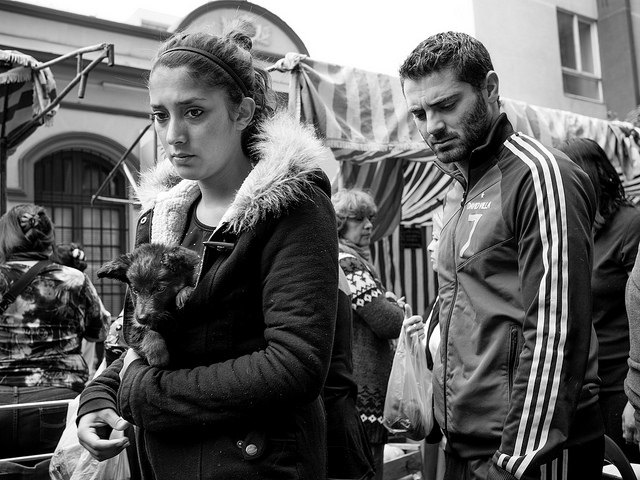Changes in life that involve a significant loss (the death of a loved one, divorce, professional crisis, deterioration of health or other irreversible and undesirable situations) provoke a natural emotional and behavioral response called grief. Overcoming the grieving process (learning to live with significant loss) requires intense and often challenging emotional work over time. Sometimes this can be days, weeks, months or years.
This post contains Amazon affiliate links, meaning I may earn a small commission if you purchase through my links, at no extra cost to you. Note: We aim to provide accurate product links, but some may occasionally expire or become unavailable. If this happens, please search directly on Amazon for the product or a suitable alternative.
When someone is permanently stripped of something or someone they love, the loss can affect their identity, for example, how they perceive their role as husband, wife, father, son or daughter. Often, the loss brings a sudden and disturbing change in the basic facets of life (such as a marked decrease in financial means, having to live alone or not being able to continue living in a family environment) that can cause extreme levels of anxiety or depression.
We live by losing and leaving and letting go. And sooner or later, with more or less pain, we must all come to know that loss is indeed a lifelong human condition. – Judith Viorst
Throughout the grieving process, it is important that we don’t judge ourselves severely and not measure our experience in terms of what we think we “should” feel or how we imagine others expect us to act.
There is no good or bad way to grieve. People’s coping mechanism varies and can be influenced by many factors specific to each individual situation. Besides cultural and religious beliefs, these factors may include the nature of the attachment people had to their loved one, the circumstances of the loss (for example, if it was unexpected, the result of violence or the result of a prolonged illness), experiences, past losses, and the availability of others to provide compassionate support.
Phases of pain
After the loss of a loved one or the loss of a critical relationship (for example, through a divorce), it may seem that intense, sometimes overwhelming, and often conflicting physical and emotional reactions completely take over the life of a person. For many, it takes up to a year to experience the deepest aspects of the grieving process and begin to accept their loss. Understand that there are natural and commonly experienced symptoms and the “phases” of the affliction can often help. However, it varies in intensity and it really depends on the personal nature of each person’s experience. Most of us go through the following, which are the three most common phases:
- Shock and denial
- Emotional and even physical pain
- Reorganization plus integration
We must understand that these phases are not necessarily experienced in that specific order. Most people find that the phases often overlap and reoccur (sometimes unexpectedly) as they mourn their loss and in their own time they change the relationship with their loss from “presence” to “memory.”
Shock and Denial
A feeling of numbness or disbelief weighs heavily on the individual affected by grief. Many later describe that they have a feeling of “flatness” or “emptiness”, some say that their mind felt “closed” or “shut down,” and that they could not accept all or even part of what just happened, and others describe having been completely distracted, as if the experience of the loss was happening to someone else.
Emotional and physical pain
People often describe this phase of pain as a seemingly endless roller coaster of emotions and physical reactions. Throughout the first year, especially after important dates arise that have a special meaning, it is not uncommon to experience levels of emotional and physical pain that may be as intense as when the loss first occurred.
The commonly experienced emotional symptoms include:
- Depression
- Despair
- Confusion
- Irritability
- Rage
- Guilt
- Loneliness
- Distraction or concern
- Passivity, a feeling that “life has lost all meaning”
- “Out of the blue” crying
Many people express feelings such as “a part of me has died” or “I wish I had died too”. During this phase it is also very common to feel angry at those you feel are “responsible” for the loss, including God, the doctors, or even the loved one who has died.
The commonly experienced physical reactions include:
- Decreased energy and extreme fatigue.
- Loss of appetite, as well as in some cases, overeating in an attempt to fill that feeling of emptiness
- Anxiety that may manifest itself in hyperventilation or panic attacks
- Tremors
- Memory loss
- Specific aches and pains, such as headaches, abdominal discomfort, back pain or stiff neck that are not related to any medical problem
- Tendency to work hard at work, school or in a demanding exercise regime
Reorganization and Integration
While sadness, pain and disbelief can continue, we progressively accept the reality of our loss and begin to discover that we must move on and can gradually develop a renewed interest in work, family, friends and life in general.
Obtaining the necessary help
Time can be a great healer. However, crucial to regaining a sense of self and learning to live with loss is the ability to openly recognize and share the full range of thoughts and emotions of grief. Friends and family can often be invaluable support systems. But it is often difficult to know how to understand what we are feeling, or feeling safe in expressing our thoughts (even to best friends) during the vulnerable period of trying to adjust to the reality of our loss. For many, even those who have never sought therapy before, sharing what is happening with a therapist provides the essential opportunity to obtain the information necessary to overcome the painful grieving process and accept the loss.
If you have lost a loved one
All of us have lost a loved one at some point but it is important to know that they never truly left. They exist in our memories, and they exist in our heart.
I believe we are here present in life to learn and we are spiritual beings having a physical experience, not the other way around. This means that our true essence is not physical, it is more energetic or spiritual. One day we will reunite with our loved ones, and perhaps in our true home environment, not at life school anymore.
This is why we must move on, perhaps the great lesson they wanted to learn has been learned, it is now up to us to continue our own path.
If you are going through relationship or career-wise difficult times
Know that difficulty is only temporary. It is not unhealthy to go through the grieving process, it is part of the human experience. Doors are closed so new ones can open. Now it is up to get up and find them. Perhaps things happen for a reason, and now it is up to you to find that reason.
And for those who lost their job or are having career challenges in their life: I want you to remember one thing: Big breaks don’t happen when you are feeling sorry for yourself.
Once you grieve a little, don’t get stuck there! It’s time to take action. You can feel sorry for yourself, but you can also get yourself out of there!
If you are experiencing a decline in health
I believe the mind, heart, and body are connected. Look around you, do you see loving family, friends or a loving pet? Rejoice in being blessed for having them. And if all you have at the moment is the ability to see the sunshine every morning, then, by all means, enjoy it and be grateful for it.
A wise “spiritual scientist” said that there are three significant things that create disease: Trauma, toxins, and mind.
Trauma often happens in situations out of our control, like accidents. But can you do something about toxins in your body, or what is in your mind? Of course!
Toxins are more common with what I call “lifeless foods” so pump your body with more food that is “alive.” Think plants, raw organic vegetables, and fruits. Stuff that still has living cells and energy.
And for your mind: Listen to inspiring music, watch inspiring shows or documentaries. Read positive and uplifting material.
Keep Positive
Here’s a big secret that could help in any challenging situation you’re in: The mind is a result of our early years’ programming. To change that programming use repetition or listen to anything positive, including affirmations right before you sleep. Why? Because this is one of the only ways I know of that resembles the hypnotic state you were in when you were a kid where most of your program occurred.
Keeping positive will allow us to look at life with optimistic eyes and hope. Having a feeling of hope gives us hope, the one thing we should never lose. Experiencing grief is part of our coping but don’t stay there forever. There is still much more to life.
Other recommended favorites:









